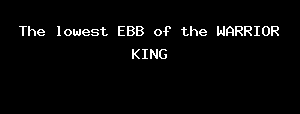The body had not yet turned up. Indeed, at that point, early in January 2004, it wasn't clear there was a body at all. Months later, at the trial, the lawyers would still be arguing about it, the puffy, wrinkled corpse that was finally found floating face down in an irrigation canal off the Tigris. But even then, even before the dead man surfaced, it was clear that something had gone wrong on that cold Iraqi night down by the river, something wild by the American military's standards of discipline and force, and the problem had wended its way up the chain of command to the unit's commander, Lt. Col. Nathan Sassaman.
Even in an Army in which ferocious competition produced nearly perfect specimens of brains and lethality, Sassaman stood apart. Commanding some 800 soldiers in the heart of the insurgency-ravaged Sunni Triangle, Sassaman, then 40, had distinguished himself as one of the nimblest, most aggressive officers in Iraq. From his base in Balad, a largely Shiite city in a sea of Sunni villages, Sassaman bucked the civilian authorities and held local elections months earlier than in most of the country's other towns and cities. His relations with the locals in Balad were so warm that on each Friday afternoon, inside a circle of tanks on an empty field, his men would face off against the Iraqis for a game of soccer. He was a West Point grad and the son of a Methodist minister. As quarterback for Army's football team in the 1980's, he ran for 1,002 yards in a single season and carried West Point's team to its first bowl victory. Everyone in the Army knew of Nate Sassaman.
Yet as his junior officers briefed him in January about what had happened to two Iraqis his men detained that night by the Tigris, the straight lines and rigid hierarchy of the Army that had created him seemed, like so many other American ideas brought to this murky land, no longer particularly relevant. More important, Sassaman told me later, were his own men, most of them 19- and 20-year-old kids plunked down in this seething country, wearing themselves out to keep the enterprise going, coming under fire four or five times a day. The same day that his men took the two Iraqis down to the river, he attended a memorial service for one of his ablest junior officers, Capt. Eric Paliwoda, whose heart had been punctured by mortar shrapnel and whom Sassaman had lifted into a medevac helicopter as the last of his life drained away.




